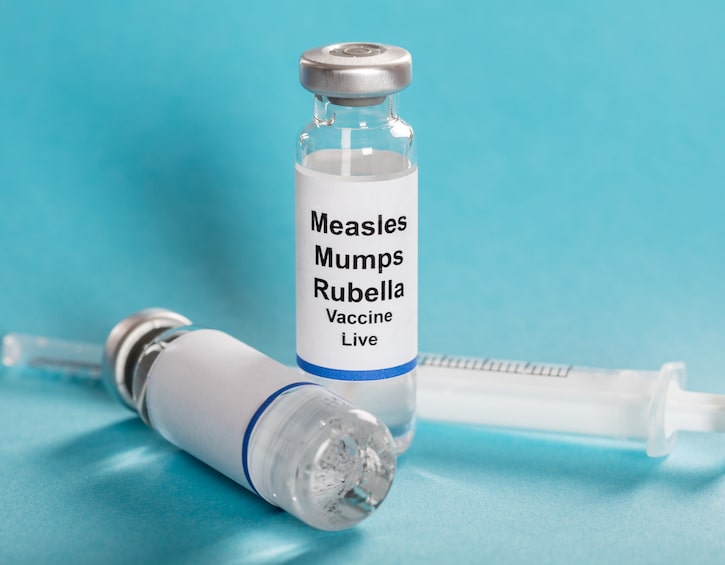
 Post Category - ParentingParenting
Post Category - ParentingParenting Post Category - Health & WellnessHealth & Wellness - Post Category - WellnessWellness
Post Category - Health & WellnessHealth & Wellness - Post Category - WellnessWellnessAvoid those red spots…
If you feel like you’ve heard a lot about measles recently, you’re not alone. This disease was a common (and life-threatening) infection in children, before the introduction of the measles vaccine, which has recently resurfaced due to children not undergoing routine immunisations. To guide you through, here’s how to best protect your kids and yourselves against this dreaded blotchy illness.
Read more: Seasonal Influenza: What You Need To Know

What is Measles?
According to Hong Kong’s Centre for Health Protection (CHP) and the Centres for Disease Control and Prevention (CDC):
- Measles is a highly contagious infectious disease caused by the measles virus
- It lives in the nose and throat mucus of an infected person
- It is so contagious that up to 90% of people around the infected person, who are not immune, will also become infected
How it spreads:
- Measles spreads when an infected person coughs or sneezes without covering their mouth
- It can live for up to two hours in an airspace where an infected person has coughed or sneezed
- It can also be spread through touch, so make sure you have your hand sanitiser at the ready
Incubation period: 10 to 14 days
Infection period: An infected person can spread measles to others before they even realise that they have it. It can be spread four days before, to four days after a rash is developed.

- Measles typically begins with a high fever, cough, runny nose and red, watery eyes
- Two or three days after symptoms begin, tiny white spots may appear inside the mouth
- Three to five days after symptoms begin, a red blotchy skin rash breaks out; it typically spreads from the face to the rest of the body
- When the rash appears, fevers may spike to more than 40 degrees Celsius
- The rash usually lasts from four to seven days but can persist for up to three weeks
Complications:
- Children younger than 5 and adults older than 20 are more likely to suffer from complications
- Common complications include ear infections and diarrhoea
- Severe complications include pneumonia (infection of the lungs) and encephalitis (swelling of the brain)
- Sadly, in extreme cases it can be fatal, but this is very rare

What to do?
The best course of action is to vaccinate your children. Measles is an extremely contagious and dangerous disease, but one that is highly preventable. Here are our top tips to protect your little ones, and yourselves, from measles:
- Make sure you and your children (and your helper) have received the Measles, Mumps and Rubella (MMR) vaccine
- Regularly wash your hands with soap
- Avoid touching your face unless your hands are clean
- Cover your mouth and nose with a tissue (not just your hands) when coughing or sneezing. Throw the tissue away immediately and wash your hands with soap and water or hand sanitiser
- Try to avoid close contact (hugging, kissing, sharing utensils) with people who are sick
- Clean and disinfect surfaces and objects that people who are sick have touched
If your child gets Measles:
- Call a doctor immediately
- Keep them home for four days after they develop the rash
- Give them plenty of fluids
- Encourage extra rest
If you are unsure whether or not you or a family member has been vaccinated, call your doctor ASAP. Don’t take any risks when it comes to protection against measles!
Read more: How To Boost Your Immunity During The Winter Flu Season
 View All
View All










 View All
View All




 View All
View All


 View All
View All












